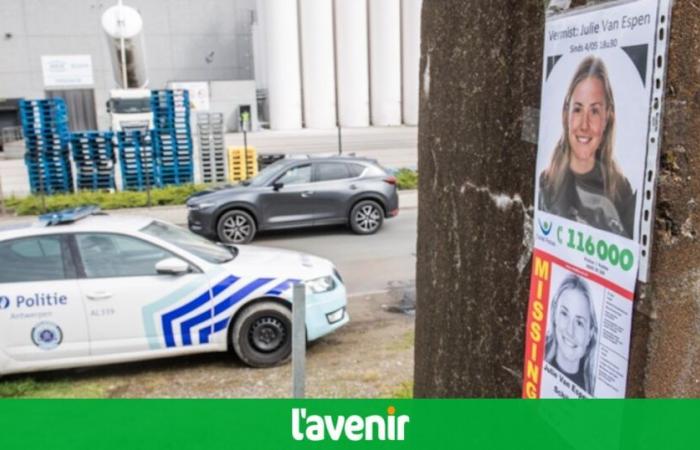
No immediate arrest
If the case was so talked about and caused so much emotion by the atrocities committed against Julie Van Espen, the fact that all this could have been avoided certainly did not alleviate things. Because this is where the lawsuit filed against the Belgian state starts: Steve Bakelmans, the man who raped and killed Julie Van Espen on May 4, 2019, should have been in prison.
Because the forty-year-old had already been sentenced by the Antwerp criminal court. Accused of raping his ex-partner, Bakelmans was sentenced in 2017 to four years in prison. But the defense decides to appeal this decision. And as Émilie Coomans, lawyer at the Brussels Bar, recalls on justice-en-ligne.be, “since no immediate arrest had been made at the time of his conviction, he remained free pending his trial before the Court of Appeal.“
Risk of recurrence, not a reason
As for the question of why Steve Bakelmans was not concerned by an immediate arrest, we must once again turn to the law. This stipulates that such an arrest can only be made “if there is a risk that the convicted person will attempt to evade serving his sentence“, explains Émilie Coomans. To put it simply: if the convicted person does not have a residence in Belgium or if he did not appear at first instance, for example.
The risk of recidivism – which could have been held against Bakelmans because he had already been convicted of rape in 2004. He had then served a sentence of four and a half years in prison – is not a reason that could lead to immediate arrest. Which explains why the perpetrator was at large. At least in part.
Call rejected
Because if he could not be immediately detained, it was the length of the appeal judgment which led to the tragedy. Not considered a priority at the Court of Appeal, the case of the rape convicted in 2017 was postponed for the first time in May 2018. Two months later, in July, the lack of staff in the chamber before which Bakelmans was to appear caused a suspension of its operation. As a result, on May 4, 2019, the man was free in Merksem.
Julie Van Espen, who was passing by on her bike, was then attacked by Bakelmans. He first pushes her off her bike, before punching her several times in the face and dragging her under the bridge where he was sleeping. The rape and strangulation of the 23-year-old girl followed. At the end of 2021, Bakelmans was found guilty and sentenced by the Antwerp Assize Court to life imprisonment, with a security period of 20 years.
“We can’t say with certainty that it wouldn’t have happened.”
Seeing the Belgian State condemned, or at least prosecuted, so that its responsibility is recognized sounds like an extraordinary event. However, according to Bernard Dubuisson, professor of law at UClouvain, “This is a case that is not so rare. I am thinking in particular of the massacre at Place Saint-Lambert“, where the families filed a complaint, without success, against the Belgian state because the culprit was on parole.
In the case of Julie Van Espen, responsibility is clearly proven. For Mona Giacometti, professor of criminal procedure at ULB and lawyer at the Brussels bar, this must be a trigger for the Belgian state. “The executive power must provide the means for the judicial power to function properly“, she believes. “This case, like all the others in which there have been condemnations of the Belgian State in relation to failures in its justice system, should lead to reactions from the Head of State.“
“No global failure”
Whether in terms of lack of staff, places in prisons or even the execution of sentences, Belgium is not exempt from criticism. We must release resources. Even if it is not certain that this could have avoided the tragedy. “We can’t say with certainty that it wouldn’t have happened.“, confirms Mona Giacometti. “Even if the Antwerp court had ordered his immediate arrest, there are still possibilities of escape. The perpetrator’s counsel can always file requests for release.“
The speech is similar on the side of Bernard Dubuisson. “It’s a waste of luck“, he explains. “That is to say, it is not 100% certain that the tragedy could have been avoided, but it is the loss of a chance to be able to avoid the harm.“
As for the fact that the Belgian State does not appeal the decision, Mona Giacometti sees it as “the recognition of the State of its responsibility for the failure in this matter. But he does not recognize any overall failure, saying that the judiciary does not work well.“, she nuances.
No appeal from the Belgian State, the family closes the procedure
Following the conviction of the Belgian state, the government’s Minister of Justice for current affairs Paul Van Tigchelt (Open VLD) affirmed that Belgium would not appeal. The trial court’s decision confirming state liability in the Julie Van Espen case will therefore not be challenged.
The Liberal minister spoke out and acknowledged that there was “unspeakable and irreparable suffering caused to Julie Van Espen and her family, and justice is responsible for it“, reports Belga. According to the Minister of Justice, the court confirmed what had been clear for a long time: “that mistakes were made. If these mistakes had not been made, this tragedy could undoubtedly have been avoided.“.
A symbolic euro
Paul Van Tigchelt also spoke of the important steps that have been taken since the death of Julie Van Espen in the fight against sexual violence. Among these, the new Sexual Penal Code entered into force on June 1, 2022. It notably included the notion of consent at the heart of this new legislation. It also provides for harsher penalties for perpetrators. The Minister for Current Affairs also underlined that the backlog at the Antwerp Court of Appeal – where the perpetrator’s appeal trial had dragged on – had been cleared.
The Belgian State must now pay one euro, provisionally, to the family. She could nevertheless initiate a new procedure if she wishes to obtain real compensation, more than this symbolic euro. But the Van Espen family was quick to announce, after the court’s verdict, that it would go no further. “This matter has always been a matter of principle for us“says Julie’s father, Erik.
The objective has “never been to seek compensation” he continued. “This is an important result for us, but also for other people in the future. It shows that if you have a strong case, you can oppose injustice. Like citizens ordinary people, the government should be able to look in the mirror and admit its mistakes. Today, this is what happened: finally, finally, finally. he blurted out, relieved.





